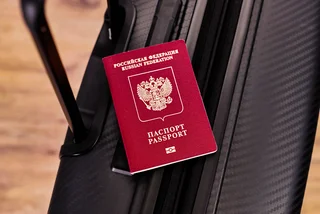As the Czech Republic opens university admissions for the next academic year, some institutions have refused to admit Russian and Belarusian applicants, citing international sanctions. However, Public Defender of Rights (Ombudsman) Stanislav Křeček says such blanket rejections based on nationality are unlawful.
In a statement released Tuesday, Křeček emphasized that international sanctions do not justify excluding students purely because of their citizenship. He clarified that any denial of admission must be based on specific and justified concerns—such as fears that the education could be misused for military or strategic purposes—not on a student’s national origin.
Following Russia's full-scale invasion of Ukraine, the EU and other international bodies imposed wide-ranging sanctions on Russia and Belarus, including restrictions on technical cooperation and assistance. Some Czech universities have interpreted these measures as a basis for denying admission to all Russian and Belarusian nationals—especially in technical fields.
"Being Russian or Belarusian is not, in itself, grounds for rejection," Křeček stated.
Křeček warned that such interpretations risk unfairly penalizing individuals with no ties to the regimes involved in the war. These may include students who have long resided in the Czech Republic or were even born there.
Last year, the Czech government indefinitely extended a ban on issuing visas and residence permits to most Russian and Belarusian citizens. While exceptions exist—for humanitarian reasons, family reunification, or individuals whose stay aligns with Czech interests—these are rare and require strong justification.
Belarusian students with scholarships from Czech, EU, or international organizations may qualify for exemptions, but similar provisions for Russian applicants remain unclear.
The ombudsman’s office has received reports of Russian and Belarusian applicants being denied access to technical programs in the current admissions cycle.
Křeček called on universities to ensure compliance with Czech and EU legal standards, and he urged affected students to appeal such decisions. Rejected applicants are encouraged to file an internal appeal with the university and, if necessary, pursue legal remedies through the Czech court system.












 Reading time: 2 minutes
Reading time: 2 minutes 






























